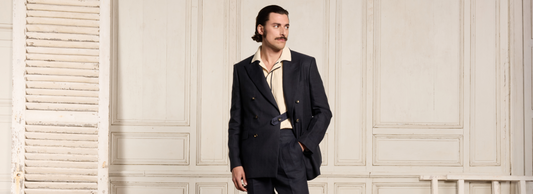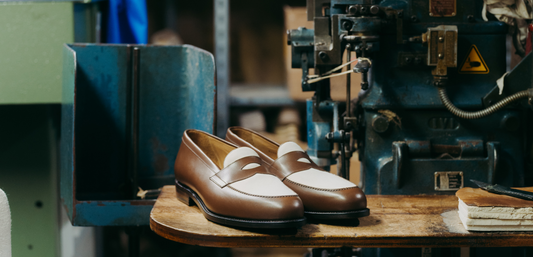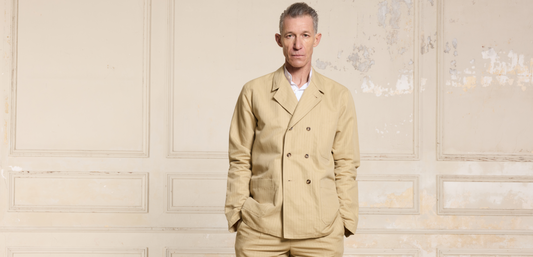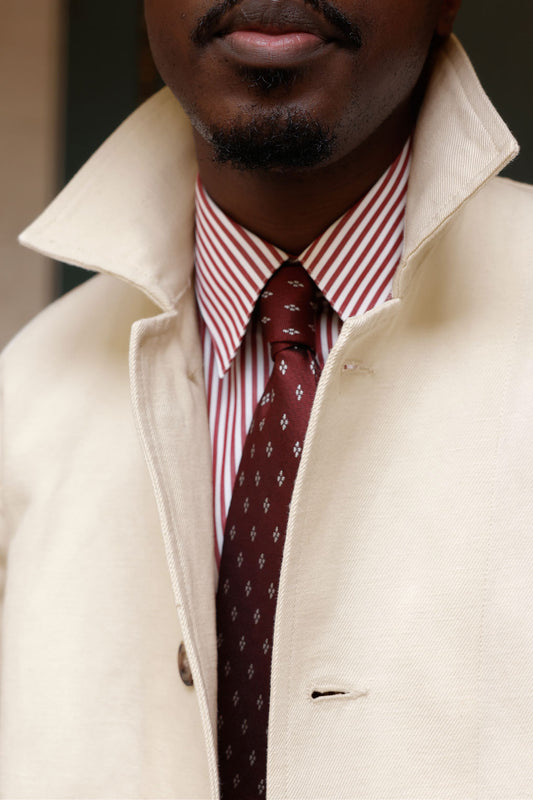Four in the morning on a Thursday. The Hast team meets at the Gare de Lyon in Paris to visit our eyewear workshop. A few hours by train later, here is the station of Oyonnax, a small town in Ain, very close to Switzerland. We chose local and French production to design our first pair of glasses . A visit which will allow us to better understand the history and production stages of glasses made in France, but also to fully understand the challenges facing French industries in the face of the relocation of production. A visit that we filmed and which we therefore invite to see and read in this article.

Oyonnax, cradle of French eyewear
The Oyonnax valley – as well as Morez, in the Jura – is the historic cradle of French eyewear. Acetate work begins with the production of combs, which women of the Grand Siècle used to style their hair. But stylistic developments and innovations quickly made the comb obsolete and the region's industries then specialized in eyewear which is based on the same work with the material. Before the multiple waves of relocations at the end of the 20th century, many companies worked with glasses. But many are under downward pressure on costs and must contend with Chinese manufacturing. Some workshops, like the one we chose to work with, believe in a return of made in France, which is not without difficulty. The pro-relocation years were difficult, particularly because many brands refused to pay for more expensive production... Factories were then abandoned and suffered from a lack of orders. Fortunately, the current period is that of a return to the promotion of quality, well-done, local work, and rewarding those who believed, despite everything, in the relevance of French-style production. This is the case of our workshop which recently obtained the EPV label, living heritage company, which distinguishes French companies with excellent artisanal and industrial know-how.

New issues
Consumers, increasingly attentive to the production conditions of the parts they buy, are campaigning for a return to local, European and French production. This is obviously happy news for the French industry! But bringing production back to France is not as simple as it seems. First in terms of costs, because French production is necessarily the victim of the comparative advantages of other countries in terms, in particular, of labor costs. Then because the increase in demand leads to saturation of the production chains of human-sized companies like our workshop. Few workshops have protected their know-how, and it is sometimes complex to recruit qualified personnel for certain types of positions. Made in France therefore faces a real challenge in terms of training and the attractiveness of textile and craft professions. Saturation of schedules and difficulties in hiring are two major problems for production factories, particularly in the eyewear sector. Faced with the expected increase in demand – further accentuated by the Covid crisis – certain workshops will have to invest significantly to modernize and expand their production lines. This is the case of our workshop, whose manager decided to produce tailor-made machines in order to reduce the arduousness of certain manual tasks. Training employees on several positions simultaneously also helps avoid the monotony of work and empowers workers, who thus become more and more experts in eyewear. They will later be able to carry out training themselves. Some positions in fact require more than a year of apprenticeship before being able to work independently.

The question of ecology
The benefit of a French production is also the assurance of working with actors who are aware of realities. In addition to recovering and recycling all unused material, our workshop is keen to keep its production location as central as possible to facilitate access by bike or on foot. For those who have to travel by car, the company's entire fleet is electric and terminals are available to employees in front of the factory.
Made in France can therefore only be achieved through collective, trusting work, between brands choosing to produce as locally as possible, and workshops, which are redoubling their efforts to revalorize their unique know-how. This is the choice we made for our first glasses!
Three pairs of French sunglasses, a pair with gray scales , a pair with brown scales and a black pair. The frames are made of Italian acetate and the lenses have category 3 sun protection. The rivets are mounted in an artisanal way by hand. High-end models, the final touch for an impeccable summer look.




